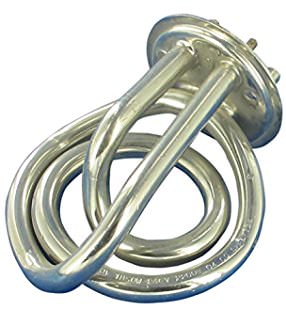amEIREcan
Member
- Joined
- Mar 6, 2017
- Messages
- 18
- Reaction score
- 0
I recently got an electric heating element for my boil kettle. The typical W shaped 2.4kw model. It boils perfectly. You know, that vigorous boil that is bubbling just right with no sign of boiling over. When I clean the kettle there is a light, sandy coloured film on the element that cleans off relatively easily. On sunday I made a Cascadian Dark Ale, 18 L batch. OG 1.069. I pitched with 4 L worth of WhiteLabs California V starter and it took off. There was a thick krausen on top in a matter of hours. The only thing is, it's been stubbornly sitting at 1.030 for a few days now. I had a few thoughts and I thought that maybe I scorched the wort, obliterated a good portion of sugars that now are not being eaten by the yeast. It's a CDA with .15kg roasted barley so of course it tastes a bit burnt so I can't tell by taste if it's been scorched. However I also thought if the sugars have been obliterated surely they wouldn't be registering on the hydrometer. If anyone has any thoughts I'd like to hear them. This is frustrating the hell out of me.










































![Craft A Brew - Safale BE-256 Yeast - Fermentis - Belgian Ale Dry Yeast - For Belgian & Strong Ales - Ingredients for Home Brewing - Beer Making Supplies - [3 Pack]](https://m.media-amazon.com/images/I/51bcKEwQmWL._SL500_.jpg)















